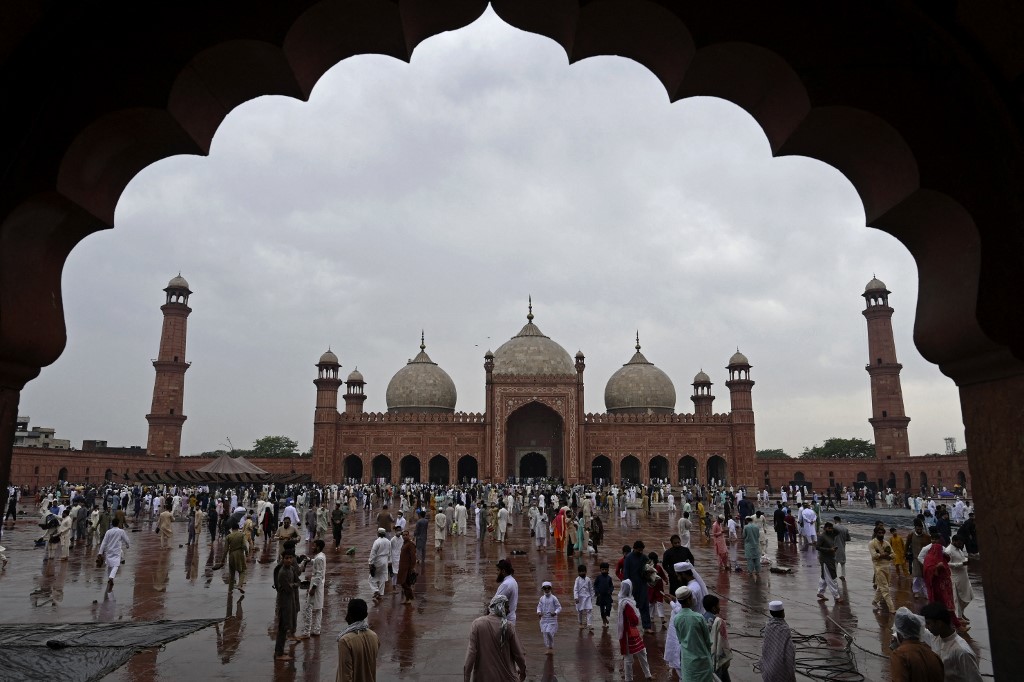What is behind Pakistan's global crusade against Islamophobia?

Although Islamophobia as a phenomenon has existed for a very long time, there has been a significant increase in anti-Muslim sentiment since 9/11, bolstered by a surge in right-wing racist ideologies and an intensification of anti-immigrant campaigns.
Although the Covid-19 pandemic provided fertile ground for bringing the international community together, it instead seems to have further accentuated Islamophobic sentiments, evidenced by a rise in hate speech, hate crimes and smear campaigns.
Since coming to power in 2018, Pakistani Prime Minister Imran Khan has been active in raising international awareness about the grave consequences of rising Islamophobia. More than 96 percent of Pakistan’s total population is Muslim.
Khan has since been more vocal than ever, calling on world leaders to help curb the spread of hate speech and Islamophobia
Countering Islamophobia is now at the forefront of Islamabad’s bilateral activities. A snapshot of the past year alone provides evidence of this, with recent high-level engagements in Egypt, Iran, Iraq, Saudi Arabia and Turkey focusing on how to combat Islamophobia.
Two recent incidents have further fuelled this drive. This past April, mass protests erupted across Pakistan over France’s defence of the publication of caricatures of the Prophet Muhammad under the “free speech” banner. The next month, Khan urged the Organisation of Islamic Cooperation (OIC) to work urgently to counter Islamophobia.
Stay informed with MEE's newsletters
Sign up to get the latest alerts, insights and analysis, starting with Turkey Unpacked
The second occurrence was the deadly attack in Canada this month against a Muslim family. Khan has since been more vocal than ever, calling on world leaders to help curb the spread of hate speech and Islamophobia. He has highlighted the need for unity against a false narrative, as Pakistan pushes for a resolution against Islamophobia at the United Nations General Assembly.
Global and local impacts
In June 2019, Pakistan put its support behind a UN plan of action to combat Islamophobia and religious bigotry, underscoring the need for legal tools to address this phenomenon. At the OIC session the same year, Khan called for an anti-Islamophobia strategy that would be enforceable by law. The Pakistani prime minister has lambasted the notion that any religion should be tied to terrorism.
While Islamophobia is often viewed in the global context, its specific linkage to Kashmir is often ignored. In his 2019 UN speech, Khan first underscored Islamophobia’s impact on Muslims worldwide, and then explained how it was being used as a tactical weapon by the Indian state not only to drive ultra-nationalist policies, but also to delegitimise the Kashmiri struggle for freedom by linking it to “Islamic terrorism”.
Last year, Khan lamented that the increased global tensions during the Covid-19 pandemic had fuelled religious hatred and violence. He has repeatedly spoken out against online hate speech, asking in a letter last October to Facebook CEO Mark Zuckerberg for the removal of Islamophobic content.
Khan has also written letters to the leaders of Muslim countries, suggesting that ongoing issues with Islamophobia in non-Muslim states might be attributed to a knowledge gap with regards to the Islamic faith.
At a Shanghai Cooperation Organisation conference last November, Khan again emphasised the need for collective action and building bridges across faiths. Later that month, Pakistan presented the OIC with a resolution to designate 15 March as the International Day to Combat Islamophobia.
Silence on the Chinese front
There has also been criticism directed against Khan who, while adamant in taking on Islamophobia in the West, has remained silent when it comes to accusations against the Chinese government’s persecution of Uighur Muslims.
The answer mainly lies in the China-Pakistan Economic Corridor (CPEC) - the flagship project of the multi-billion-dollar Chinese Belt and Road Initiative (BRI). Commenced in 2013, for Pakistan the project is nothing short of a life buoy that has helped keep the country afloat amidst times of severe economic hurdles. Moreover, China has supported Pakistan at all political, multilateral forums, most noticeably at the United Nations and the Financial Action Task Force (FATF) meetings.
Recently, when a spat between Saudi Arabia and Pakistan resulted in the former recalling a loan it had provided to Islamabad, China stepped in and helped bail out Pakistan through the provision of immediate financing.
Hence, upsetting its closest ally by interfering in what has time and again been called China’s "internal matter" would be harmful for Pakistan. In a recent interview, Khan acknowledged as much when he stated that the close ties Pakistan shares with China demands that all issues between the two countries are discussed behind closed doors.
Growing frustration
Needless to say, Islamophobia has become a key aspect of Pakistan’s foreign policy. Against the backdrop of the Pakistani foreign ministry’s calls to curb violence during the latest escalation in Israel-Palestine, and considering Pakistan’s recent geopolitical outreach across the Middle East, Islamabad has developed a relatively strong footing in terms of voicing its opinions in multilateral forums.
Importantly, by taking a strong stance against Islamophobia, Islamabad hopes to further its narrative on the plight of the Kashmiris in Indian-occupied Jammu and Kashmir.
Of course, any country’s foreign policy is also shaped by issues on the domestic front. For Pakistan, it is extremely important to counter Islamophobia in order to address the growing frustration among the Pakistani populace over this increasing global trend.
If the Pakistani government does not show that it is taking concrete steps towards curbing this phenomenon, it could pay a heavy price politically on the home front.
The views expressed in this article belong to the author and do not necessarily reflect the editorial policy of Middle East Eye.
Middle East Eye delivers independent and unrivalled coverage and analysis of the Middle East, North Africa and beyond. To learn more about republishing this content and the associated fees, please fill out this form. More about MEE can be found here.






